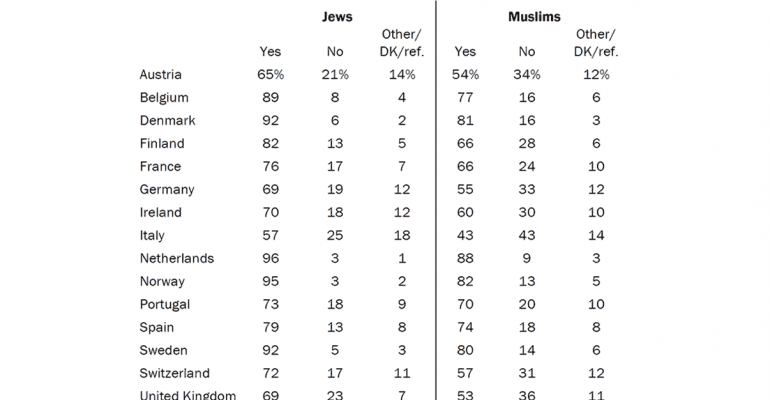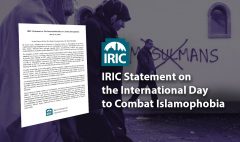Measuring attitudes toward Muslims and Jews in Western Europe
July 1, 2018 2024-03-18 2:10Measuring attitudes toward Muslims and Jews in Western Europe

Measuring attitudes toward Muslims and Jews in Western Europe
The religious landscape of Western Europe is changing. The Christian population is declining, while the share of religiously unaffiliated adults is increasing. The Muslim population is growing as a result of immigration and higher fertility rates. Meanwhile, the Jewish population appears to be on the decline due to emigration to Israel and other factors.
Against this backdrop, Pew Research Center asked people in 15 Western European countries a number of questions related to multiculturalism and pluralism, with a specific emphasis on their attitudes toward Muslims and Jews. These questions were part of a broader study on religion and identity in the region. Neha Sahgal, one of the lead authors of the study, discusses how the survey team constructed its questions and analyzed the results.
“The survey questions weren’t designed to measure anti-Semitism or Islamophobia in a comprehensive way, but rather to capture some expressed negative sentiment about these groups. We asked respondents about their willingness to accept Muslims and Jews as neighbors and relatives. We also asked questions about whether people think Islam is compatible with their country’s values and culture, and if they favor restrictions on Muslim women’s religious clothing. Another set of questions asked people if they agree or disagree with a number of strongly worded statements about Jews and Muslims.”
When looking at the results, readers should keep a few things in mind. Survey respondents may harbor negative feelings toward Muslims and Jews, but not express them to an interviewer. Others may express negative feelings, but not have the opportunity or inclination to act in a hostile way toward Muslims and Jews living in their midst. Nonetheless, the survey provides not only cross-national results on these questions, but also some sense of the factors associated with these views.
Education is also a factor: People with less education are more likely to take negative positions toward Muslims, Jews and immigrants. And familiarity does not seem to breed contempt. On the contrary, Europeans who say they personally know a Muslim are less likely to express negative views of Muslims.
Continue reading at: Pew Research Center








